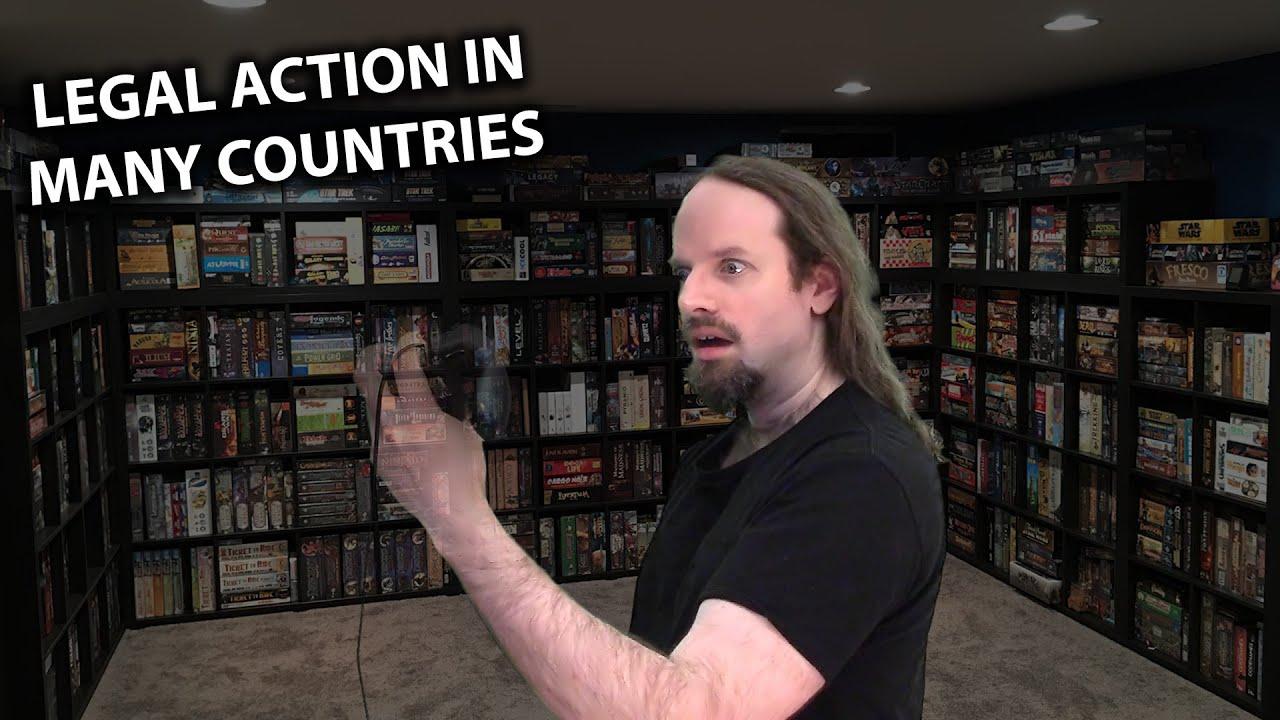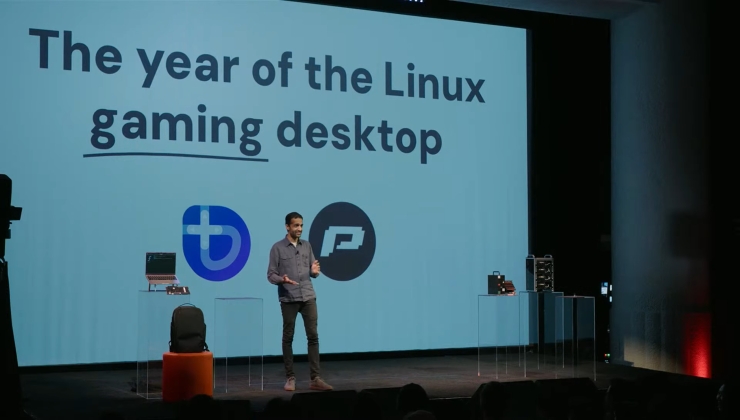We've all been there right? You paid for a game, it required an active internet connection and a couple of years later the publisher decided they're done with it and shut it down leaving you with a broken game. Annoying.
Very annoying. It repeatedly happens, mostly AAA publishers that do it and their games are often quite expensive too. One of the most recent is The Crew from Ubisoft, a game that until late December last year cost £25.99. The developers at Ubisoft Ivory Tower announced on December 14th that as of March 31st, 2024 the servers would be shut down and so it will no longer be playable for anyone. The Crew 2 is still online, and Ubisoft are about to launch The Crew Motorfest on Steam on April 18th.
So now YouTuber Ross Scott of Accursed Farms, has launched the Stop Killing Games campaign to try and better highlight the issue. As noted on the campaign website: "An increasing number of videogames are sold as goods, but designed to be completely unplayable for everyone as soon as support ends. The legality of this practice is untested worldwide, and many governments do not have clear laws regarding these actions. It is our goal to have authorities examine this behavior and hopefully end it, as it is an assault on both consumer rights and preservation of media. We are pursuing this in two ways:"

Direct Link
It's definitely an interesting and often frustrating issue, especially for games that could seemingly continue to let you play offline without too much trouble. It's a complicated issue though, and the campaign might not end up going anywhere, but it's certainly going to be interesting to watch.
Unquestionably a campaign I can get behind though, because I've said for years it's a really poor situation for consumers to have your purchase suddenly stop working forever that you've not just put money into but often a ton of your time. It's a question of preservation too, the games are just — gone. I miss the days where you could just host your own server.
What are your thoughts?
What Ubisoft did with The Crew or IOI with the Hitman reboot trilogy should be illegal.
[edit] oops, forgot that the UK removed Scotland from the EU. Well, I still hope the above.
Last edited by pb on 3 Apr 2024 at 11:32 am UTC
If you buy a shirt, unless you break it, you will be able to wear it forever.
A game, on the other hand...
However, I'd advocate to further this consideration: not only it's about games that become unplayable because of online requirement, but what abou those that become unplayable in your system after the inclusion of something that wasn't there when you bought it? For example a drm, or invasive anticheat.
I am ok with updating a game to improve it, of course, but what when they break it by making something to stop supporting a system on purpose? (Comes to mind Roblox or the last BS from EA).
What are your thoughts?My thoughts are that when you buy, say, a kettle, that kettle is yours to keep. If someone from the company that made the kettle were to come into your house a few years after you buy it and take away the kettle that you bought and paid for, that would be illegal. It should be the same for video games. It's very simple, really.
Thanks for posting about this, Liam, and go Ross!
We've all been there right? You paid for a game, it required an active internet connection and a couple of years later the publisher decided they're done with it and shut it down leaving you with a broken game.
Actually no. I've kept to my principles and that meant I've not had to endure this. No required third party on-line dependencies in a purchased game. That means no launchers with on-line DRM, no Denuvo, no third party accounts. Technically that still means I could purchase games directly from the likes of Ubisoft and such, but a lack of trust has keep me away from those.
That said, I obviously agree with this. But as long as people keep buying these games it'll stay like this.
My thoughts are that when you buy, say, a kettle, that kettle is yours to keep. If someone from the company that made the kettle were to come into your house a few years after you buy it and take away the kettle that you bought and paid for, that would be illegal. It should be the same for video games. It's very simple, really.But this does happen, with all these "smart" products. See news all the time about features removed, suddenly subscriptions needed to keep certain features going and so on. It's not just gaming it happens. Sadly.
But this does happen, with all these "smart" products. See news all the time about features removed, suddenly subscriptions needed to keep certain features going and so on. It's not just gaming it happens. Sadly.I honestly didn't know that - as with not buying into the sorts of games afflicted by these issues, I've never bought into those sorts of appliances either. A fridge really doesn't need to be connected to the internet, y'know?
I am generally of the opinion, but especially when it comes to games, that unused intellectual property should become public domain after a certain period of time. This should apply to trademarks, patents and copyrights.
I don't know him, but since he's a Scot, I really hope the EU will pick it up and do what they do best.
[edit] oops, forgot that the UK removed Scotland from the EU. Well, I still hope the above.
I'm pretty sure Ross is from the US.
Last edited by WorMzy on 3 Apr 2024 at 12:50 pm UTC
But this does happen, with all these "smart" products. See news all the time about features removed, suddenly subscriptions needed to keep certain features going and so on. It's not just gaming it happens. Sadly.I honestly didn't know that - as with not buying into the sorts of games afflicted by these issues, I've never bought into those sorts of appliances either. A fridge really doesn't need to be connected to the internet, y'know?
It's something I see with a lot of "smart home" stuff. I stayed away from all of it for now because it's not really necessary. But I would apply the same logic as I do with games. Can I 100% self host the system if I want to? Yes, then ok, no means I won't get it.
Personally I just don't reward these games companies with my hard earned money in the first place, but putting their practices through the legal process and (hopefully) having their shady practices declared illegal in one or more countries is something I can get behind.Currently based in Poland.
I don't know him, but since he's a Scot, I really hope the EU will pick it up and do what they do best.
[edit] oops, forgot that the UK removed Scotland from the EU. Well, I still hope the above.
I'm pretty sure Ross is from the US.
I want to see legislation put in place to make it illegal to take away access from a game after purchase and also bring in legislation to allow re sale of digital games.
I would also like to see physical releases with a download code banned. If I buy a physical copy then I want a fully offline playable game on the disk.
If the online multiplayer servers of a game is shut down then the games online portion should be open sourced to allow preservation.
If publishers abandon a game by not releasing a game for active purchase on any platform then that game should be considered abandonware and thus be put into public domain.
We need to fight back.
i do think the last year of a title new players thinking about buying a game should be aware on all storefronts of its impeding shutdown and said game should be heavily discounted.
Full automatic refunds for every copy when a company kills the game is much simpler, and removes most of the financial incentive for that undesirable behaviour (you've still given them an interest-free loan, after all).
If you've sold someone something you shouldn't be able to take it away from them and keep the money; that's a principle that most people can get behind.
It needs to gather enough interest and participants for anything to happen, so yeah let's share it a lot. And it needs to face the PR efforts of companies (that will no doubt try to spin it as being an unreasonable request and diminish the problem) and possibly actual lobbying... it will need to be answered while not letting the companies set the terms of the discussion.











 How to set, change and reset your SteamOS / Steam Deck desktop sudo password
How to set, change and reset your SteamOS / Steam Deck desktop sudo password How to set up Decky Loader on Steam Deck / SteamOS for easy plugins
How to set up Decky Loader on Steam Deck / SteamOS for easy plugins
See more from me